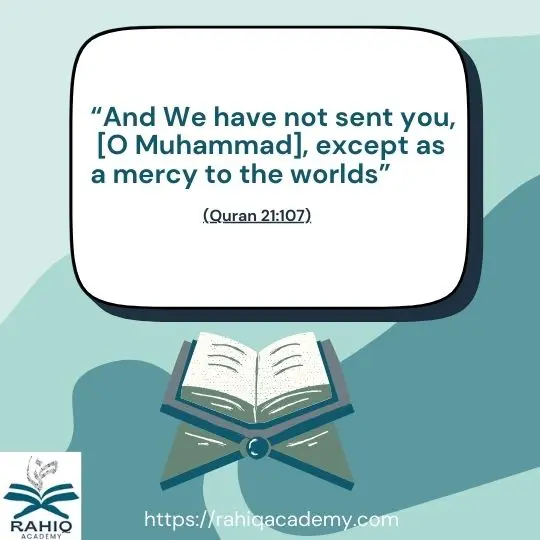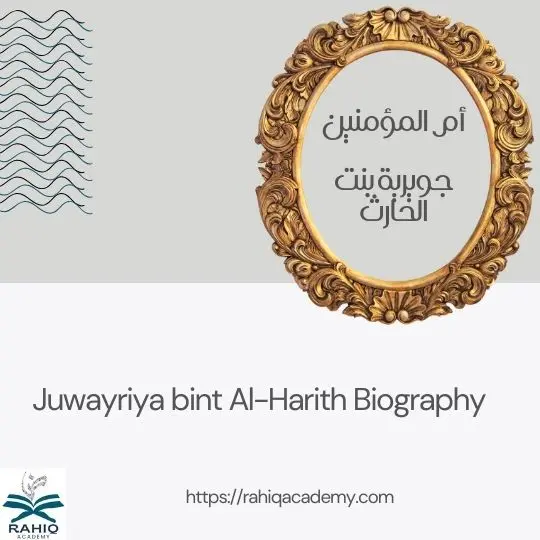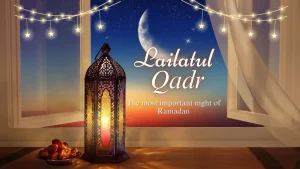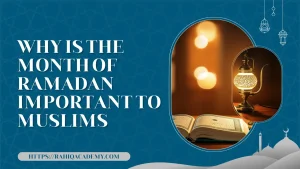Juwayriya bint al-Harith is a respected figure in Islamic history as one of the Prophet Muhammad’s wives Her story is one of transformation and mercy, as she went from being a noble captive to an esteemed member of the Prophet’s family. her journey reflects Islam’s principles of compassion, unity, and reconciliation, and her life is a testament to the enduring impact of the Prophet’s wisdom and guidance. Juwayriya bint Al-Harith biography offers a closer look at her role, her contributions to Islamic knowledge, and the legacy she left for future generations.
Juwayriya bint al-Harith Hadith
As a Mother of the Believers, Juwayriya bint al-Harith (RA) not only embraced the teachings of Islam but also shared the Prophet’s ﷺ wisdom with others. She transmitted several hadith, one of which reflects her deep commitment to worship and the significance of remembering Allah:
Juwayriya (RA) reported that one morning, the Prophet ﷺ left after the Fajr prayer while she was seated in her place of worship. When he returned later in the day, he found her still in the same place.
He asked, “Have you been here in the same spot since I left?” She confirmed, and he responded, “I recited four phrases three times after I left you, and if these were weighed against all that you have recited today,
they would outweigh them: Subhan Allah wa bihamdihi, ‘adada khalqihi, wa ridha nafsihi, wa zinata ‘arshihi, wa midada kalimatihi (Glory is to Allah and praise is to Him, by the number of His creation, the pleasure of His Self, the weight of His Throne, and the ink of His words)”
(Riyad as-Salihin, Hadith 1763)
This hadith, shared by Juwayriya, highlights the spiritual benefits of concise yet meaningful remembrance, emphasizing both her devotion and the importance of dhikr in Islam. It serves as a reminder that one’s heart can be deeply connected to Allah through mindful worship, even in simplicity.
Juwayriya bint al-Harith Marriage
Juwayriya bint al-Harith marriage to the Prophet Muhammad ﷺ is an example of compassion, mercy, and strategic wisdom. During the Battle of Banu Mustaliq in 5 AH (627 CE), she was among those captured as a prisoner of war. A noblewoman by birth, she was the daughter of the tribal leader al-Harith, who led her tribe in opposition to the Muslims at the time. Seeking freedom, Juwayriya approached the Prophet ﷺ with a request for help.
Recognizing her dignified status, the Prophet ﷺ offered her something greater than freedom: he proposed marriage to her. Juwayriya accepted, and upon learning of their union, the Prophet’s ﷺ companions released the other captives from the Banu Mustaliq, saying, “They are now relatives of the Prophet.”
This act of kindness and respect led to the release of around a hundred families and fostered a newfound sense of peace and solidarity between the Muslims and the Banu Mustaliq. Many members of her tribe embraced Islam following this event, and the Prophet’s ﷺ actions exemplified how compassion and reconciliation can transform relationships.
Juwayriya bint al-Harith Role in Islam
After her marriage, Juwayriya bint al-Harith (RA) devoted herself to a life of worship and piety. She is particularly remembered for her dedication to dhikr (remembrance of Allah), spending hours in contemplation and spiritual reflection. Her commitment to prayer and her teachings through hadith provide Muslims with guidance on how to lead a life centered on worship and patience.
Juwayriya’s influence extended beyond her personal acts of worship. Her marriage to the Prophet ﷺ helped create a bridge of understanding between the Muslims and the Banu Mustaliq, inspiring many members of her tribe to accept Islam.
Through her role as a mother of the believers, she contributed to the spread of Islam, not only through her own spiritual practices but also by narrating hadith that reflect the Prophet’s ﷺ emphasis on mercy, patience, and devotion.
The Reason for the Marriage of the Prophet to Juwayriyah bint al-Harith

The Prophet Muhammad ﷺ married Juwayriya bint al-Harith (RA) as part of a broader approach to foster unity, peace, and reconciliation.
This marriage provided an opportunity to strengthen relations with the Banu Mustaliq tribe, a tribe that had previously opposed the Muslims. By marrying Juwayriya, the Prophet ﷺ not only secured her freedom but also transformed a potential source of conflict into a harmonious relationship based on kinship.
“And We have not sent you, [O Muhammad], except as a mercy to the worlds”
Through his marriage to Juwayriya, the Prophet ﷺ demonstrated Islam’s principles of mercy and compassion.
His decision had a powerful effect on the Banu Mustaliq, who, seeing the respect given to Juwayriya, began to embrace Islam. This act was a profound example of how the Prophet ﷺ used personal relationships to foster peace, build alliances, and promote the message of Islam in a way that was inclusive and unifying.
Death of Juwayriya bint al-Harith
Juwayriya bint al-Harith (RA) spent her later years in Madinah, leading a life of devotion and reflecting on the teachings of Islam. She is believed to have passed away around 50 AH (670 CE) during the caliphate of Muawiyah ibn Abi Sufyan (RA). Her contributions to the Muslim community, particularly through her narrations and commitment to worship, have left a lasting legacy.
As a mother of the believers, she is remembered for her spiritual dedication, her role in uniting communities, and her example of humility and patience. She was buried in Madinah, where she remains a revered figure for Muslims around the world.
Conclusion
Juwayriya bint al-Harith exemplifies the profound impact of faith and the beauty of Islam’s emphasis on unity, mercy, and compassion. Her marriage to the Prophet ﷺ brought her tribe into harmony with the Muslim community, and her dedication to worship continues to inspire believers to this day. Juwayriya’s life serves as a reminder of the transformative power of Islam and the importance of patience, rememberance, and faith.
To delve deeper into the lives of the Prophet’s companions and gain insight into the timeless teachings of Islam, you are invited to explore the resources available at RAHIQ Academy. By learning about figures like Juwayriya bint al-Harith (RA), Muslims can gain a deeper understanding of Islam’s core values and be inspired to embody them in their own lives.




